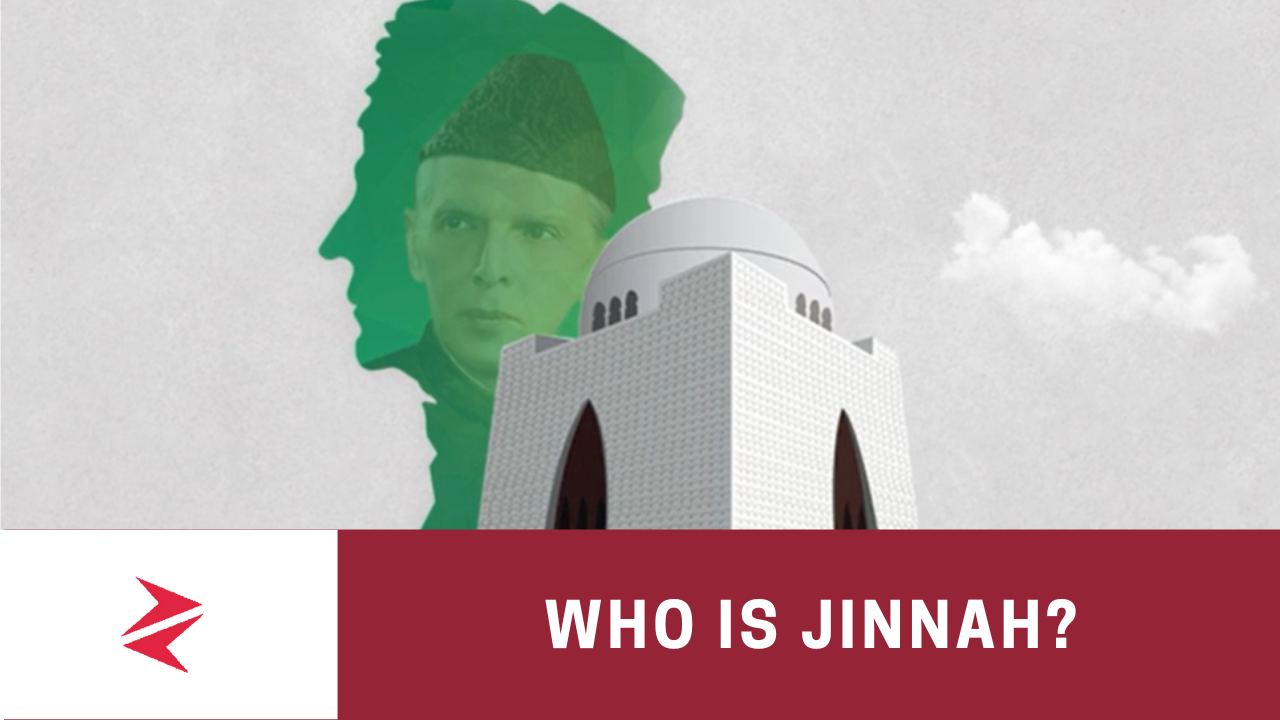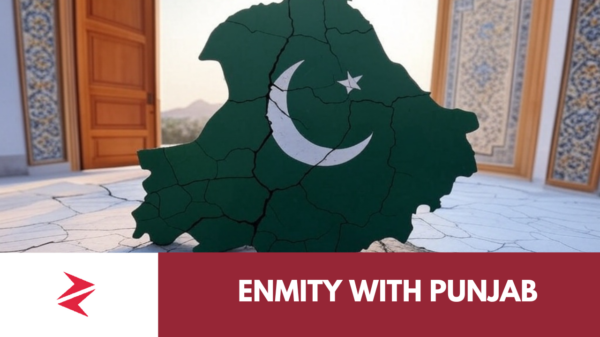In the realm of history, Quaid-e-Azam Muhammad Ali Jinnah stands tall as the esteemed founder of Pakistan, hailed for his ability to merge political expediencies with the profound appeal of Islam, paving the way for a separate state for the Muslim populace. The skill of Jinnah in combining a sequence of political necessities with the widespread resonance of Islam to advocate for a distinct state for the Muslim people has earned him the title ‘the founder of Pakistan’.
The revival of Islam globally in the 1970s tended to overshadow the earlier endeavors by Muslims to unify religious and political authority in the 20th century. Throughout the Middle East, Africa, and South and South-East Asia, Muslims led the revolt against Western colonial rule. In India, particularly, the Muslim desire for political power was clearly evident. As the era of British rule approached its end, many Muslims, in the name of Islam, fervently demanded the creation of a separate state, leading to the emergence of Pakistan in August 1947. This momentous achievement primarily owed its existence to the extraordinary efforts of one man – Mohammad Ali Jinnah.
Muhammad Ali Jinnah alongside Mohandas Gandhi in Bombay, September 1944
The global Islamic resurgence of the 1970s has overshadowed earlier efforts by Muslims in the century to unite religious and political authority. Muslims led the rebellion against Western colonialism across the Middle East, Africa, and South and Southeast Asia. Notably in India, the Muslim aspiration for political power was vividly apparent. With the end of British rule there, many Muslims, invoking Islam, demanded the establishment of a separate state, Pakistan. Its emergence in August 1947 remains a significant political feat in modern Muslim history, largely attributed to one individual, Mohammad Ali Jinnah.
The Muslim community in British India was far from homogenous; they were divided along ethnic, linguistic, and sectarian lines. The main ethnic division was between the descendants of Arab and Turkish invaders and those who descended from indigenous Hindus who converted to Islam. No single language united Indian Muslims; instead, they shared regional languages like Bengali, Punjabi, Gujarati, and Tamil with their Hindu neighbors. Internal strife between the Sunni and Shia sects further impeded Muslim unity. Additionally, economic interests often aligned Muslims with their Hindu counterparts, especially in regions like Punjab and United Provinces, where the Muslim and Hindu populations were in relative balance. As elected councils and assemblies were introduced, Muslims in regions like Punjab and Bengal, where they were the majority, had different political priorities and interests compared to areas like United Provinces, where they were a minority. In such circumstances, Jinnah’s ability to unite Muslims behind the demand for Pakistan in the 1940s was a remarkable feat.
Jinnah’s journey remains an enigma, shrouded in controversy. Despite starting his career as a respected leader in the Indian National Congress, he later became its staunchest opponent. Interestingly, while he was not a devout Muslim, he advocated for Pakistan in the name of Islam. Although he lacked fluency in most Indian Muslim languages, he captivated millions during the Pakistan campaign.
The details of Jinnah’s family background and character are as mysterious as his political motivations and success. Born into a merchant family of recent converts to Islam in Karachi, little is known about his early life. Even his birth date remains uncertain, though he always maintained it was on Christmas Day, 1876. Throughout his life, Jinnah remained distant and inscrutable, rarely revealing his true self in public or private settings. The final Viceroy of India, Lord Mountbatten, found greater comfort in the sociable Jawaharlal Nehru, Jinnah’s leading Congress Party adversary, than in Jinnah. Their meetings early in April 1947 were often frustrating, leading Mountbatten to describe Jinnah as a “psychopathic case” after one seemingly unresponsive discussion.
At the age of sixteen, Jinnah’s father sent him to London to study law at Lincoln’s Inn, where he deeply immersed himself in his studies. During this time, he met several Indian politicians, including Dadabhai Naoroji, a prominent member of the Indian National Congress. Jinnah’s exposure to English customs and belief in the effectiveness of parliamentary democracy became his political trademarks.
After returning to India in 1896 as a qualified barrister, Jinnah faced three challenging years before establishing himself as Bombay’s leading Muslim lawyer. Only after securing his legal career did he enter politics. His initial foray was as private secretary to Dadabhai Naoroji during the 1906 Calcutta session of the Congress. Jinnah built crucial connections, particularly with influential leaders like Gopal Krishna Gokhale, and emerged as a prominent Muslim figure in the Congress, often regarded as a future leader.
Until 1913, Jinnah largely avoided the main Muslim political organization, the Muslim League. It was founded in 1906 to protect Muslim political rights and primarily represented the conservative outlook of the Muslim elite in the United Provinces. However, in April 1913, Jinnah assumed leadership of the Muslim League, seeking to align its views with those of the Congress. He orchestrated the 1915 session to coincide with the Congress, and his efforts led to the famous Lucknow Pact of 1916, a rare instance in Indian history where the Muslim League and Congress reached a voluntary agreement on the country’s political future. The Pact granted several safeguards to Muslims, including separate electorates and representation in Legislative Councils where they were a minority. However, despite the optimism it inspired, the Lucknow Pact’s impact on Muslim-Hindu relations was temporary and limited to the political elite.
Jinnah’s fortunes took a turn with the British constitutional reforms of 1919, known as dyarchy. While it provided opportunities for politicians with strong local support, Jinnah, lacking a powerful regional power base, struggled to maintain his influence at the local level. He continued as an independent leader in the Central Assembly, attempting to mediate between powerful local Muslim politicians and the Congress in constitutional negotiations. However, his role diminished, and Mian Fazl-i-Husain, the influential leader from Punjab, gradually assumed greater authority in representing Muslim interests.
In 1931, Jinnah settled in London, intending to retire from politics and focus on his legal career. However, his return was prompted by Nawab Liaqat Ali Khan, his future right-hand man and Premier of Pakistan, who emphasized the Indian Muslims’ need for Jinnah’s experienced leadership. Liaqat’s visit in 1933 was followed by Jinnah’s election as the representative for the Central Legislative Assembly from Bombay in 1934. The 1935 Government of India Act presented him with an opportunity to regain his political influence, and Jinnah returned to Bombay in October 1935. Over the next twelve years, he would ascend to become the Governor-General of an independent Pakistan.
Numerous questions surround Jinnah’s role in the Pakistan movement. His transformation from a skilled debater in the Central Legislative Council to the revered Quaid-i-Azam remains intriguing. Did he sow the seeds of Pakistan’s desire within the Muslim community, or was he merely guiding the movement, using his legal prowess to advocate its case to the British and Congress? Did he genuinely believe in the possibility of achieving Pakistan, or was it a tactical bargaining tool to safeguard Muslim rights as British rule drew to a close? Finally, did he control events or was he a mere observer in the tide of an Islamic revolution?
Extensive research and access to government and private archives in India, Pakistan, and Britain have provided some answers to these perplexing questions. Jinnah emerges not as a charismatic leader leading his people to a promised land but as a shrewd and determined political tactician who skillfully navigated the dramatic political changes of World War II and the British exit from India.
The 1937 elections held throughout India for autonomous provincial assemblies created by the 1935 Government of India Act yielded mixed results for the Muslim League. Despite Jinnah’s reorganization efforts, the Muslim League only secured 109 out of the 482 Muslim seats, largely due to its poor showing in Punjab and Bengal. The Unionist Party dominated the Muslim constituencies in Punjab, thanks to the support of the influential landowners controlling the rural electorate. Jinnah recognized the importance of the Punjab leader Sikander Hayat Khan, allowing him to control the Muslim League organization in the province to gain support in national politics.
By 1939, the Muslim League’s influence grew significantly due to Congress’ mistakes in the 1937 elections, which allowed the Congress to form governments in seven out of India’s eleven provinces. Many Muslims found themselves under Hindu rule for the first time, as the provincial Congress governments failed to understand and respect their cultural and religious sensitivities. Consequently, the Muslim League’s claim to be the sole protector of Muslim interests gained momentum. The outbreak of World War II further bolstered the Muslim League’s standing, as it received equal recognition with the Congress from the British authorities. The subsequent Cabinet Mission offered India self-government in return for wartime support, conceding, in theory, the future partition of India.
The Muslim League’s rise was not solely due to widespread support for Pakistan; rather, it owed much to local discontents and loyalties. Jinnah purposely kept the concept of Pakistan vague to appeal to all sections of the Muslim community. His relentless political maneuvering led to significant victories for the Muslim League in the 1946 elections, especially in the Punjab. Although the support for Pakistan was affirmed, many votes for the Muslim League were driven by personal loyalty to its candidates rather than an unwavering commitment to Pakistan. In this context, the idea and boundaries of Pakistan were far from clear.
The final year of British rule presented immense challenges for Jinnah, exacerbated by his perception of British favoritism towards the Congress Party. Disillusioned, he veered from his strictly constitutional approach, calling for direct action by the Muslim League, resulting in the violent Calcutta riots in August 1946. As tensions escalated, India teetered on the brink of civil war. The subsequent negotiations, though tense, eventually led to the partition of India, and Pakistan emerged as an independent state on August 14th, 1947. Unfortunately, this newfound freedom was marred by violent communal clashes, displacing millions of people.
Jinnah’s untimely demise in September 1948 left Pakistan with a profound void in leadership. While many argue that his extended presence could have averted some post-independence political instability, the weaknesses in Pakistan’s political landscape stemmed from the Muslim League’s diverse power base, comprising conflicting landlord factions. The decline of the Muslim League and the lack of a solid popular support base contributed to Pakistan’s subsequent political challenges, marked by corruption and factionalism. Jinnah’s place in history, however, remains secure, as the revered Quaid-e-Azam whose charisma and leadership paved the path for Pakistan’s independence. Yet, it is essential to acknowledge that Pakistan’s creation was not a result of a unified nation awaiting Jinnah’s guidance, nor was it a product of an Islamic revolution. Rather, Jinnah adeptly harnessed the popular appeal of Islam and political circumstances to temporarily unite Muslims behind the vision of Pakistan. The priority of Pakistan, however, was primarily confined to a small Muslim elite.
Through the intricate lens of history, Quaid-e-Azam Muhammad Ali Jinnah’s legacy emerges as a multi-faceted tapestry, woven by the intertwining threads of political expediencies and the profound allure of Islam. His political acumen and adeptness in navigating the tumultuous times of pre-independent India secured him a remarkable place as the founder of Pakistan. While the enigmatic figure of Jinnah might never fully yield all its secrets, his contributions to shaping the course of history remain etched indelibly in the annals of Pakistan’s past.



